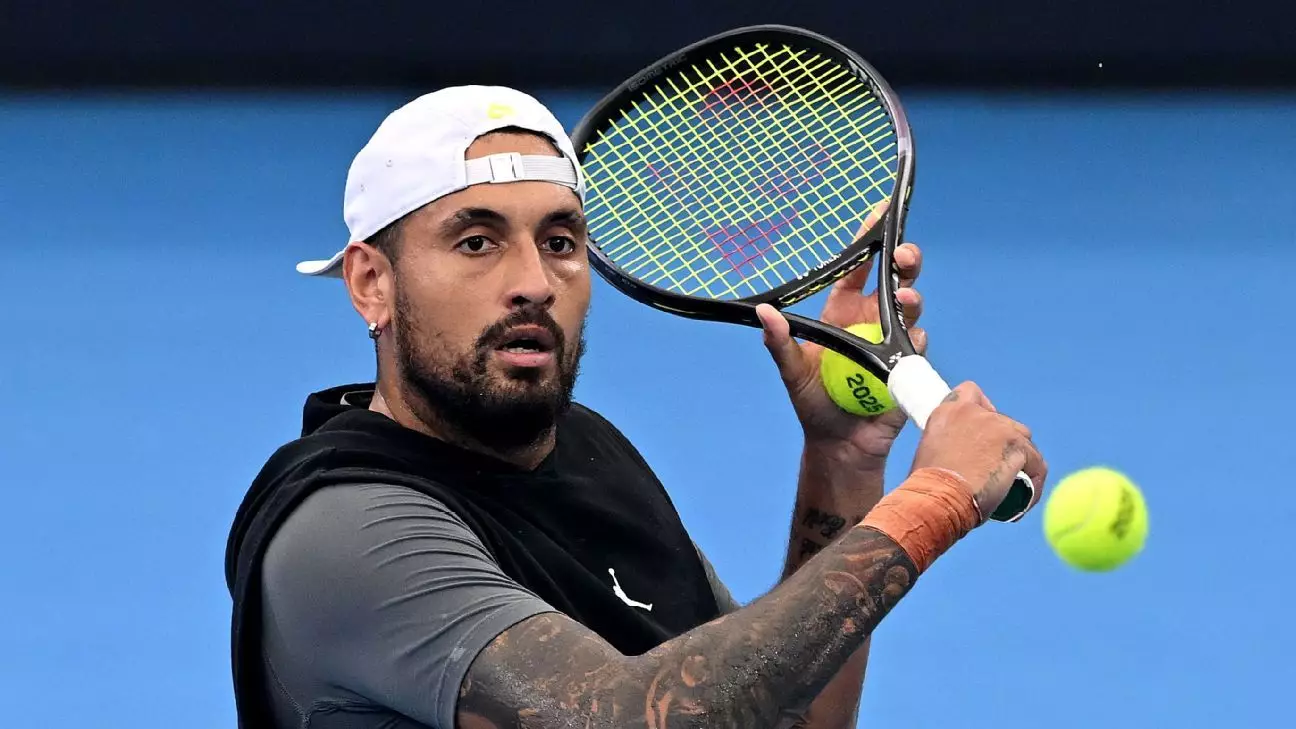Tennis has long been a bastion of athletic prowess and sportsmanship, but recent events have thrown its integrity into serious question. In a provocative statement, controversial tennis player Nick Kyrgios has accused fellow athletes Jannik Sinner and Iga Swiatek of undermining the sport with their alleged doping violations. The revelations surrounding their cases have ignited a firestorm of debate about ethics, accountability, and the very essence of competition in tennis. This article delves deeper into the implications of these accusations and why they matter for the future of the sport.
The International Tennis Integrity Agency (ITIA) has levied serious charges against Jannik Sinner and Iga Swiatek, two of the sport’s most prominent figures. Sinner tested positive twice for an anabolic steroid, while Swiatek faced a one-month suspension for using the banned substance trimetazidine. Both athletes faced different consequences; Sinner was cleared of significant penalties due to a determination of unintentional contamination, while Swiatek’s suspension raised eyebrows.
Kyrgios’s comments serve as a reflection of the growing unease surrounding doping within tennis. His assertion that having two reigning world No. 1 players embroiled in doping scandals is “disgusting for our sport” resonates loudly in a time when athletes are expected to be role models. The knowledge that the sport is not as clean as it could be tarnishes the image of tennis and could dissuade young, aspiring professionals who idolize these figures.
As Kyrgios himself grapples with injuries—having been away from the court since June 2023—his focus on integrity becomes even more pronounced. Having fought his own battles, he emphasizes that despite the pressures of recovery, he would never consider resorting to performance-enhancing drugs. His personal commitment to fairness raises questions about the motives of athletes who are caught in doping scandals.
Kyrgios mentions the numerous prohibited substances available that could potentially expedite healing, expressing incredulity at those within the sport who opt for unethical paths to enhance their performance. “I have to be outspoken about it,” he states, underscoring a belief that these issues should not be brushed aside. Instead, he believes they warrant a critical examination from the public and the sport’s governing bodies.
The specifics of Sinner’s case reveal a significant lack of oversight in athlete management. He has argued that his physiotherapist accidentally exposed him to the anabolic steroid clostebol during treatment. However, Kyrgios raises a crucial point: if such an incident occurred, why was this not addressed immediately? Why did Sinner continue to employ a physiotherapist who apparently compromised his integrity?
For Kyrgios, these questions are essential, as they strike at the heart of the system that ostensibly holds athletes accountable. To him, the handling of such situations should not just reflect a commitment to maintaining clean sport but should also foster a ruthless standard of care among teams and practitioners. This raises the broader issue of whether the current regulatory frameworks are sufficient to deter doping or if they leave room for manipulation.
Kyrgios’s conversations about doping and accountability reflect a crucial moment for tennis. As we see more athletes embroiled in controversy, it raises the specter of a sport in identity crisis. The integrity of tennis is not merely a matter for the ITIA or regulatory bodies; it is about the ethos of competition itself. In an era where the lines between heroism and infamy can blur rapidly, it is imperative that both players and administrators work from the same playbook.
The conversation sparked by Kyrgios is about more than just one or two players; it is about preserving the sanctity of a sport that millions revere. Failure to address these issues could lead to a disillusioned fanbase and a tarnished legacy for future generations. For the sake of tennis, its athletes, and its fans, a thorough reckoning with these accusations is not just necessary but urgent.

